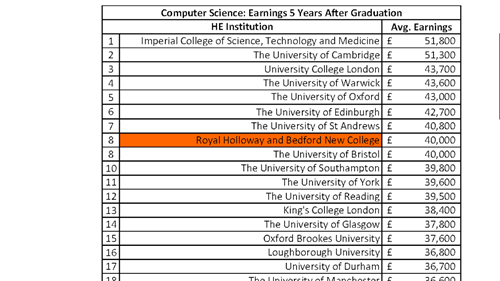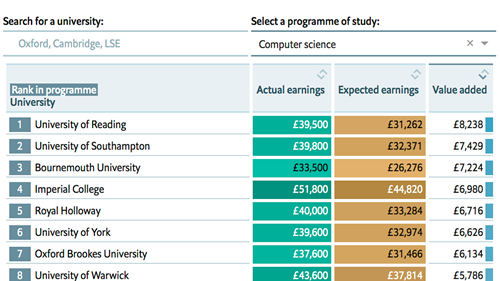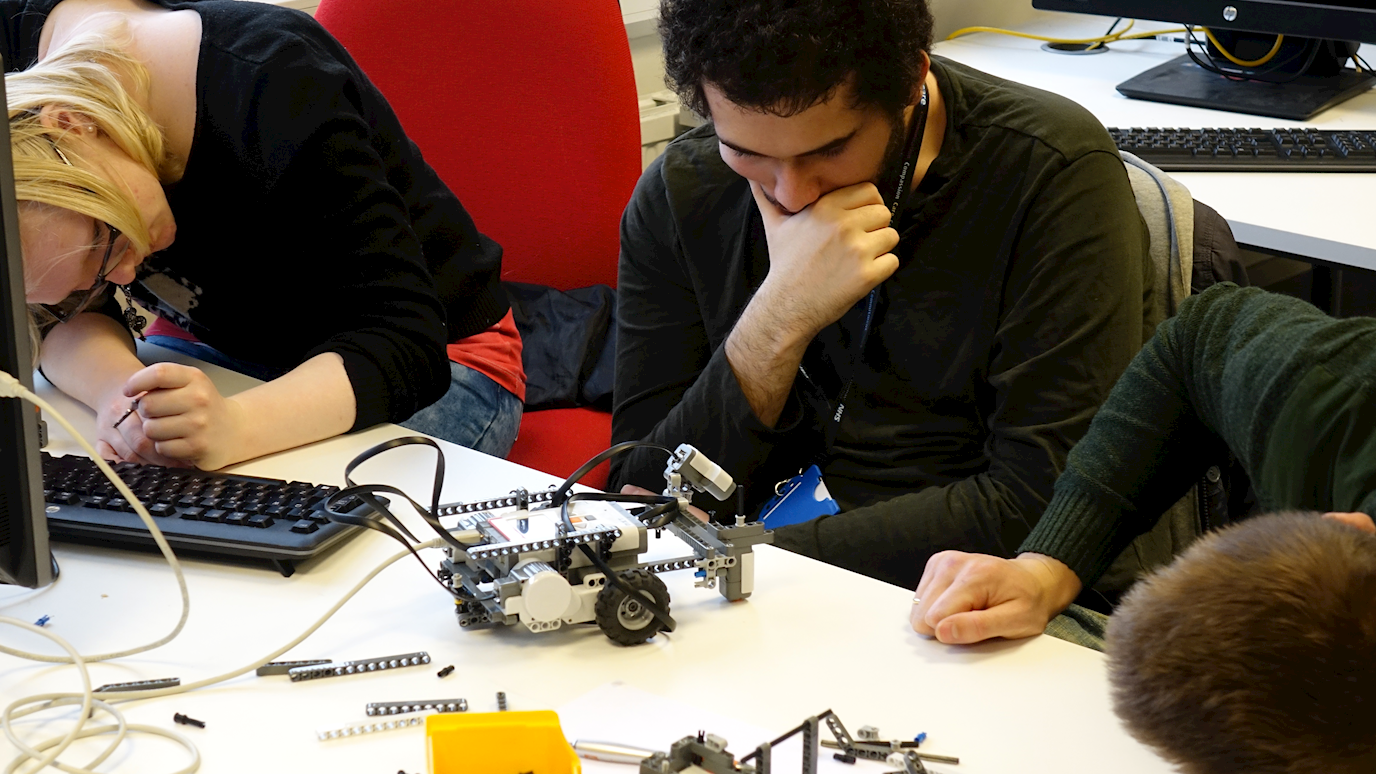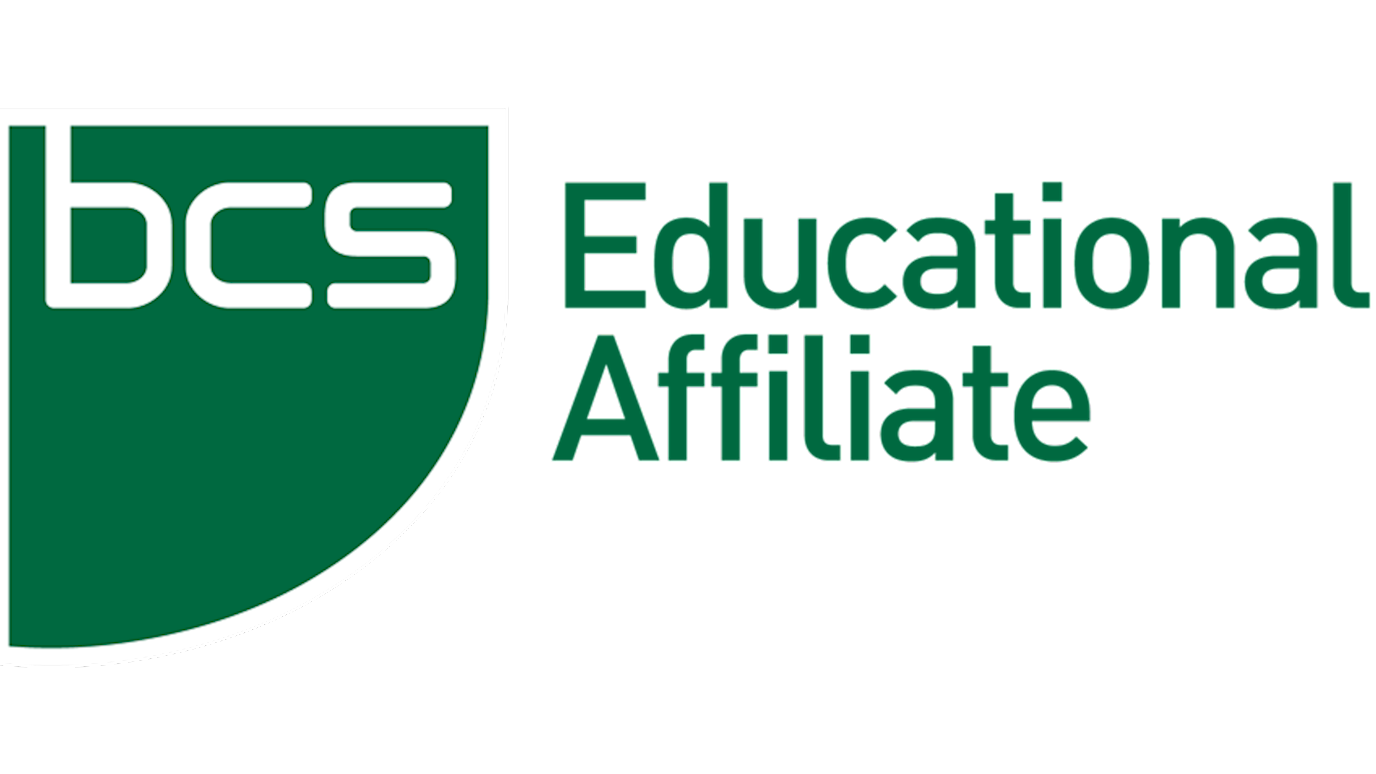Studying a degree in Computer Science at Royal Holloway opens doors to a whole range of career opportunities.
By graduating with a degree from the Department of Computer Science, you will be embracing a career in which individuals can make a huge impact in boosting economic competitiveness in all sectors of activity and the well being of societies.
Our graduates go on to work for well-known companies and organisations or they join or create start-ups. 94% of our graduates are in graduate level employment or further study within 15 months of graduating (Times and Sunday Times Good University Guide, 2021)
There are many ways in which we support you in finding a job that meets your ambitions and makes use of your skills, and in ensuring that you can progress in your career.
Skills
Employers are interested in the skills developed through student life as well as the academic knowledge students gain through studies. The main three skills that they look for are:
- Problem-solving, which you acquire throughout your degree through the teaching and assessment methods that we use: you will learn how to "think computationally", which is the unique ability that Computer Science graduates have to solve problems through computational means. You will not be asked to memorise what you learn in classes but to apply it given situations; and you will not learn technology on its own but in the context of where it is applicable in support of a wider development process that starts with understanding the problem to be solved and the best methodology to use it.
- The ability to work in teams, which you start acquiring from Day One: more than 50% of assessment in the first year is through small projects that you need to develop in teams. The second-year team project is a substantial development project in which each team uses Agile Scrum-based programming with weekly meetings with one of our academics who is a certified Scrum Master.
- Technical competency, which means more than learning a few programming languages. You will use the Eclipse and PyCharm IDEs, Subversion and Git version control systems, JUnit testing, Google Windowbuilder Pro GUI developer, and other modern industrial-strength tools.
In addition to the academic programme, we give you the opportunity to develop transferable skills and market yourself effectively for graduate jobs. For example, in addition to developing projects, you will have to give presentations or demos, and to write reports, for which we organise dedicated training.
See also under "Exploring who you are" what extra-curricular activities we organise that will allow you to further develop your personal skills, including leadership and entrepreneurship.
The Year in Industry pathway
You will be given the opportunity to apply for an industrial internship after your second year of study (if you are on a BSc degree) or your third year (if you are on an MSci degree), provided you are performing well academically.
This will be an integrated part of your studies, leading to a Year-in-Industry degree, which is highly valued by employers. Our of our academics visits you twice during your placement and keeps in touch with your host to monitor your progression. Many students take advantage of this opportunity, finding placements both in software developing companies and in companies specialising in other areas, such as finance or consulting.
These internships enable you to gain valuable work experience, which helps prepare you to move into the career of your choice upon graduation. Often, at the end of their placements, students are offered permanent jobs in the same company, which they may take up following graduation.
Careers support
Advice and training on careers is provided by our departmental Careers Director and the University Careers Service. In particular, you will receive training on CV writing, completing application forms and preparing for an interview. Throughout the year, the departmental Placements and Careers officer relays to all students opportunities that we receive for internships or graduate jobs, and helps them with the applications.
We also organise a number of events through which you can get directly involved with employers:
- Through the part-time jobs fair, which runs in the first weeks of term, you will have access to local employers.
- A specific fair on IT, organised jointly by the Department and the Computer Society, brings many companies to the campus (over 40 in 2017, with circa 400 students attending).
- ‘Careers in Finance’ week explores career opportunities in Investment Banking, Public Sector Finance, Accountancy, Professional Services, Risk and Insurance.
- The ‘Numbers, Words and Environment’ careers week offers you the opportunity to explore further the diverse range of occupations related to Computer Science.
- The Department also maintains a strong link with its alumni, who are often able to provide you with advice, contacts and networking opportunities. Read some of our graduate profile here
Industry links
The Department has an Industrial Advisory Board comprising of senior representatives from Accenture, Aridhia, Blackrock, British Gas/Centrica, dotMailer, HP, Investec, Jump Trading, Microsoft, Ovum, Pentatonix, Salesforce and Yahoo!
The Board members provide valuable and detailed advice on our curriculum to ensure that the courses we offer are constantly revised and updated. This means that our graduates entering employment are already up to date with the latest developments and ready to build the next generation of computing systems for business and industry.
Employment data
According to official statistics computed in 2018 by the DLHE – Destinations of Leavers from Higher Education, 97% of our graduates were employed or in further study six months after graduation. This does not mean that the other 3% were unemployed as several of our graduates take a year out after graduation or are self-employed as free lancers, in family businesses, or indeed create their own companies.
It's not only that our graduates are highly employable: they are well paid. According to recent official statistics computed by the LEO (Longitudinal Education Outcomes) survey, Royal Holloway students who graduated with a Computer Science undergraduate degree in 2008/09 had an average salary of £40,000 in the 2014-15 financial year, i.e, five years after graduation. This places us 8th in relation to all UK-domiciled students who graduated with a first degree qualification in computer science in that year. The full data is available from HEFCE.
Furthermore, and according to The Economist (August 10, 2017), Royal Holloway ranks 5th among UK Computer Science departments for value added, by which they mean the difference between estimates of expected earnings and the actual average salary of their graduates. The statistical model that estimates how much graduates from each university can expect to earn is based on how selective a university is, what subjects its students study, the share of students from lower-income areas, how many students enter after age 20, what share of students attended private schools and where the university is located. The full article is available here.

























